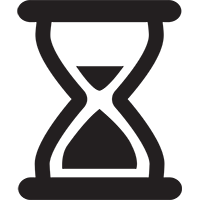

 Working with the trauma research team at Birmingham’s Queen Elizabeth Hospital and scientists at the University of Birmingham, MAAC is participating in the Golden Hour study. This pioneering research project analyses blood samples taken from trauma patients by MAAC and WMAS’s MERIT teams. By obtaining pre-hospital samples within the first 60 minutes following injury, researchers can identify new markers, which may help clinicians to identify at-risk patients for trauma-related complications during their clinical care in hospital.
Working with the trauma research team at Birmingham’s Queen Elizabeth Hospital and scientists at the University of Birmingham, MAAC is participating in the Golden Hour study. This pioneering research project analyses blood samples taken from trauma patients by MAAC and WMAS’s MERIT teams. By obtaining pre-hospital samples within the first 60 minutes following injury, researchers can identify new markers, which may help clinicians to identify at-risk patients for trauma-related complications during their clinical care in hospital.
Through the collaboration of the University of Birmingham, University Hospitals Birmingham NHS Foundation Trust and Defence Scientific and Technology Laboratories, the aim of the Golden Hour study is to characterise the biomarker response to traumatic brain injury (TBI) and define the roles of biomarkers in injury detection, diagnosis, monitoring, classification, prognosis and treatment. This will form a basis for future interventional studies to improve outcome of TBI patients.
TBI remains a leading cause of morbidity and mortality in particular affecting the young with a male preponderance. At present, treatment is largely supportive and investigational techniques have not changed apace clinically despite numerous research efforts. A biomarker in the broadest sense is any characteristic that may be objectively assessed to provide an indicator of a normal or abnormal physiological state of an organism. This includes laboratory tests along with imaging and more simple clinical findings. Biomarkers are used in other clinical settings, such as Troponin for cardiac damage during heart attack. There has been increasing interest in the development of biomarkers for neurotrauma, although this has not yet led to a change in clinical practice. Previous research has assessed potential biomarkers including substances released generally in response to or as an effect of injury in this context, e.g. creatine kinase, glial fibrillary acidic protein, myelin basic protein and S100B. Studies conducted so far have not fully defined the role of biomarkers in clinical practice; few have made a transition to the bed side. The variety of biomarkers may be assayed in order to provide an insight into many factors surrounding an injury, such as severity and progression.
The Golden Hour study aims to improve on previous clinical studies by investigating a range of potential biomarkers in serum, brain tissue (through microdialysis if applicable), cerebrospinal fluid (CSF, if applicable) and imaging in TBI and non-TBI (i.e. other major trauma as control) patients with comprehensive outcome measures. In the long term we hope these biomarkers might improve the diagnosis, monitoring and prognostication of TBI thus allowing better targeted treatment and potentially revealing new avenues for management.
The Golden Hour team published its findings, which can her viewed here.